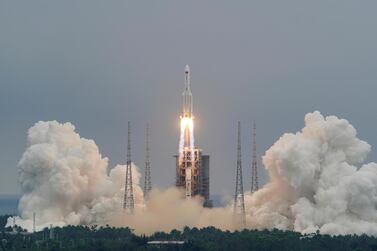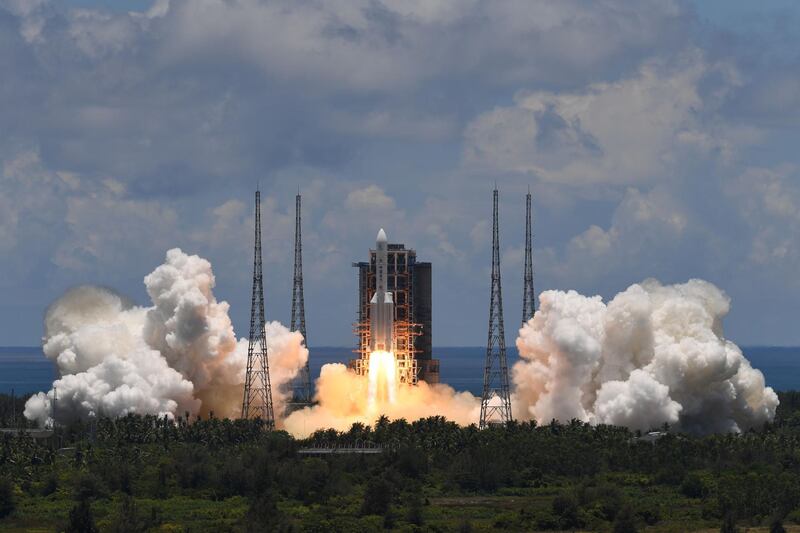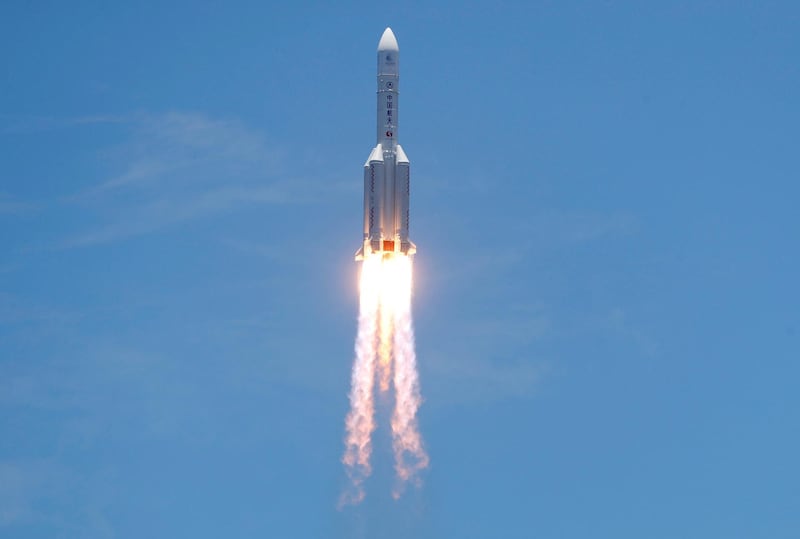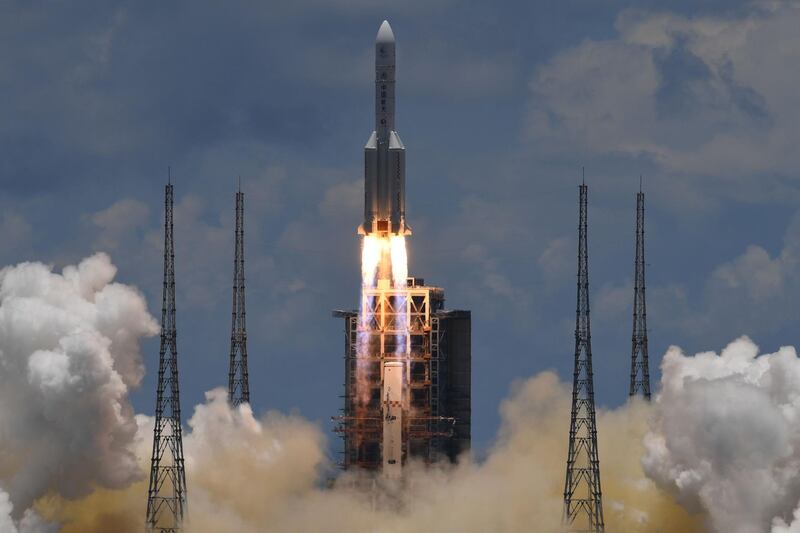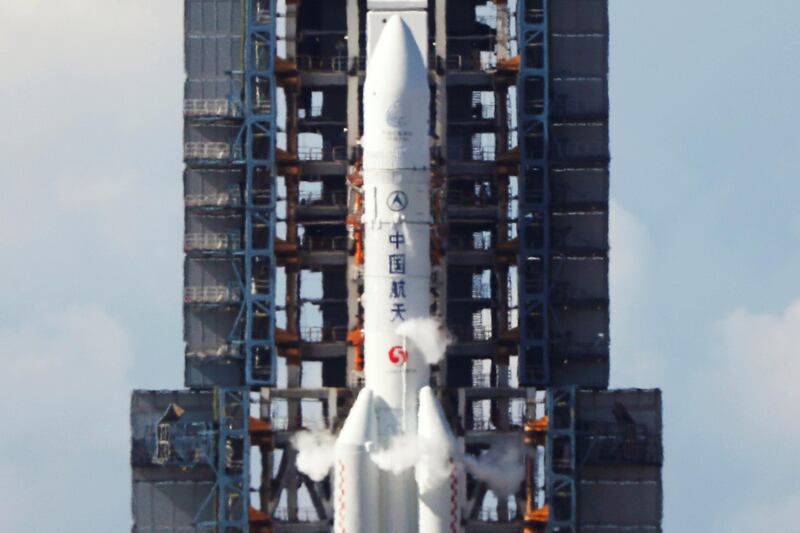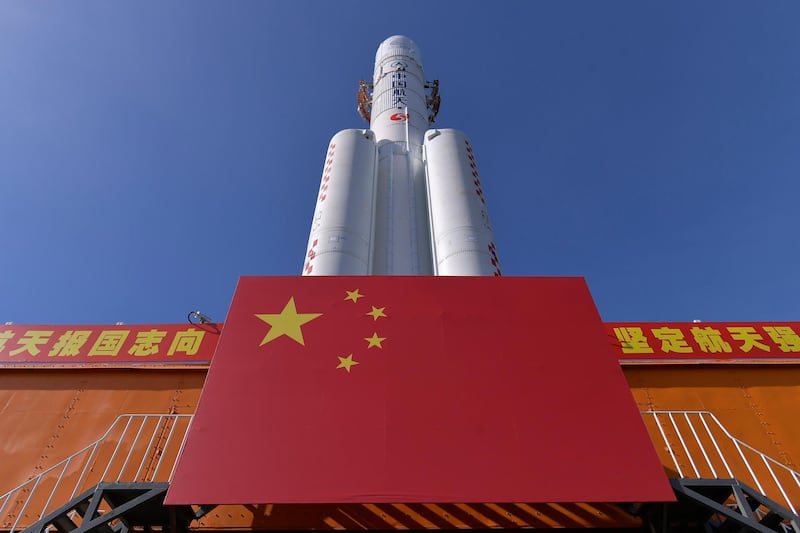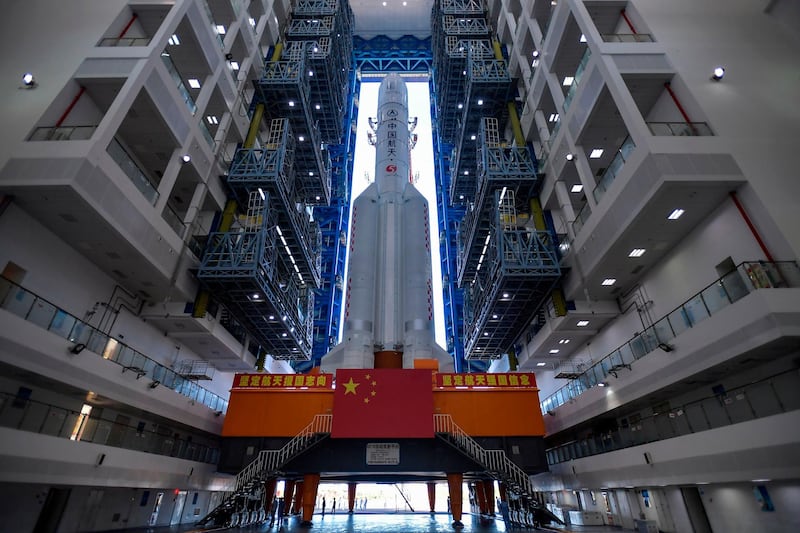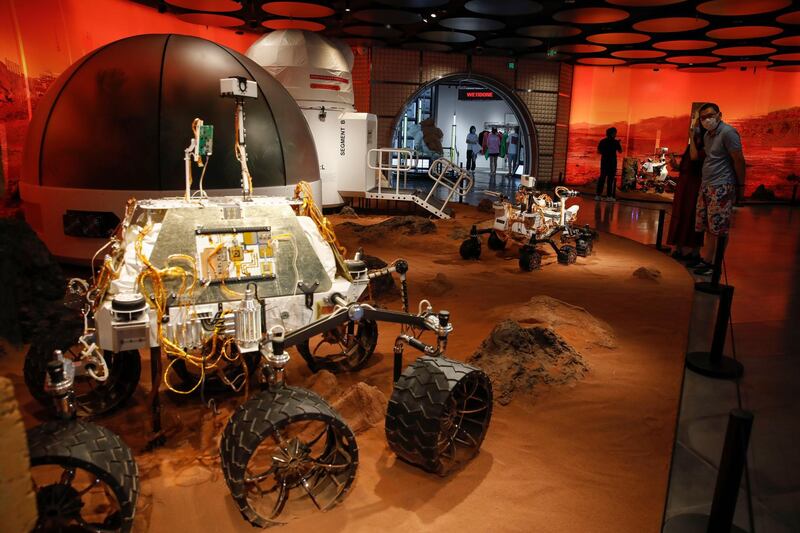The remnants of China's largest rocket have landed into the Indian Ocean near the Maldives, sparking international anxiety and a sharp rebuke from the US space agency.
In the early hours of Sunday, the rocket made an uncontrolled re-entry to Earth, with social media users across the world reporting sightings of debris hurtling across the skies.
The segment that landed near the Maldives was part of the Long March 5B, which carried the first core module of China’s space station into space on April 29.
"The last stage wreckage of the Long March 5B rocket has re-entered the atmosphere and the landing area is at 72.47°E longitude and 2.65°N latitude," China's space administration said.
Chinese Rocket seen over Jordan
— Walid (@walidbarahmeh) May 9, 2021
5:11am | May 9, 2021#LongMarch5 #ChineseRocket pic.twitter.com/qjLNERm08q
Astrophysicists and space agencies had live tracked the rocket’s location for several days.
The US Space Command, which is responsible for military operations in space, were among those following the re-entry.
On Sunday, there were reports of rocket debris in the skies of the Middle East, with videos circulating of it being spotted in Jordan, Oman and Saudi Arabia.
China's foreign ministry had said last week that most of it would burn up in the atmosphere and it would probably fall into the ocean, without causing any harm.
“China is following closely the upper stage’s re-entry into the atmosphere,” Chinese Foreign Ministry spokesman Wang Wenbin said on Friday.
Claimed observation from Oman which if genuine would imply the reentry was underway with impact over the Indian Ocean https://t.co/Ix6nqUv20d
— Jonathan McDowell (@planet4589) May 9, 2021
“To my knowledge, the upper stage of this rocket has been deactivated, which means that most of its parts will burn up upon re-entry, making the likelihood of damage to aviation or ground facilities and activities extremely low.
Jonathan McDowell, an astrophysicist at the Astrophysics Centre at Harvard University, said on Sunday that a water landing was likely.
“An ocean re-entry was always statistically the most likely. It appears China won its gamble,” he said.
Last year, pieces from another Chinese Long March 5B rocket tumbled down to Earth on to two villages in the Ivory Coast, causing damage to houses.
US space agency Nasa criticised China on the uncontrolled re-entry of its rocket.
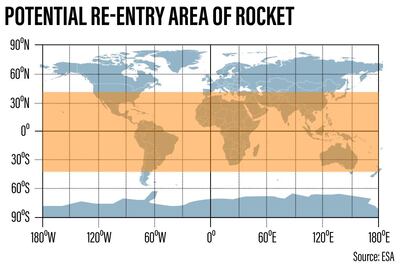
Nasa administrator Bill Nelson hit out at Beijing for not meeting the standards set for space debris.
“Spacefaring nations must minimise the risks to people and property on Earth of re-entries of space objects and maximise transparency regarding those operations,” he said.
“It is clear that China is failing to meet responsible standards regarding their space debris.
“It is critical that China and all spacefaring nations and commercial entities act responsibly and transparently in space to ensure the safety, stability, security, and long-term sustainability of outer space activities.”


